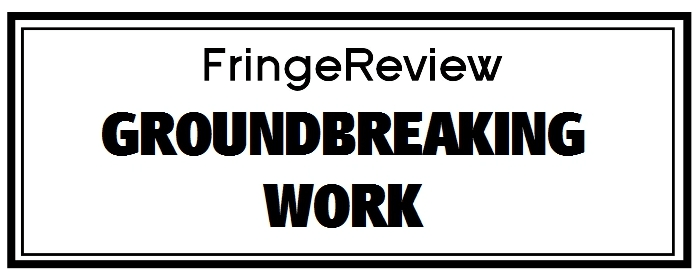Edinburgh Fringe 2018
Freeman
Strictly Arts Theatre and The Pleasance

Genre: New Writing, Theatre
Venue: Pleasance Courtyard - Above
Festival: Edinburgh Fringe
Low Down
Inspired by the first man in America to plead insanity as his defence, award-winning writer Camilla Whitehill and Strictly Arts examine the unspoken link between mental health and systemic racism. Throughout time and across waters, from William Freeman to Sarah Reed, six true stories are threaded together and told through physical theatre, spoken word, gospel singing, shadow puppetry and more. History is bound to repeat itself when the thumb is permanently bearing down on the loop button, so has anything really changed?
Review
From the moment the house goes out and the lights go up, it is clear we are seeing something new, an important story about systemic racism and mental illness from a company of accomplished artists. Part devised work, part physical theatre, part dance, part spoken word, Freeman tells the story not of one man but of a cycle of racism and discrimination firmly entrenched and indelibly linked in a history stretching across time and across continents.
Freeman is a call to action which begins where it ends and ends where it begins. Thrust into a netherworld, our storytellers, all victims of violence and social injustice, are bound together, their stories essentially linked and necessitating that every one share their story if they are to answer the question, “What next?”
Tracing through powerful first person accounts and impressive physical theatre, these specters of the past and present leave a haunting impression of the inequity throughout time, the lack of access to health care, the unequal treatment under the law, the refusal to face a system head on which so willfully and repeatedly degrades and decimates. Freeman offers no easy answers, just raises questions.
From the first physical montage, a macabre dance of death with bodies tumbling over each other, Freeman is a scream not for vengeance, not even for justice, but for visibility and dialogue. At moments throughout the show the names of fallen sons and daughters of color come so quickly there is little time to recall whose story we are hearing, a brutal commentary on the frequency of homicides in the community, images of names and hashtags flashed on screen at greater and greater frequency, the brutality of beatings, tasings, domestic violence and sexual assault perpetrated by those in power and depicted in grim detail, yet it is the inability to speak, the silencing which cries loudest to be heard.
What makes Freeman extraordinary is not only an exceptional commitment from this skilled cast who shift character and storyline with the fluidity of a prima ballerina, fully embodying each character and moment with both humor and humanity. There are moments of levity, dance, family, and yet even in the darkest of moments there is a sense of play and a hopefulness which challenges the audience not to be silent spectator, but to be a present and accountable witness to the defense. The case of William Freeman stands as a blight on an already sordid history of race relations and bears repeating, and Freeman is an uncomfortable, riveting, challenging and essential work which will inspire anger, shame, conversation, and hopefully change.


















































